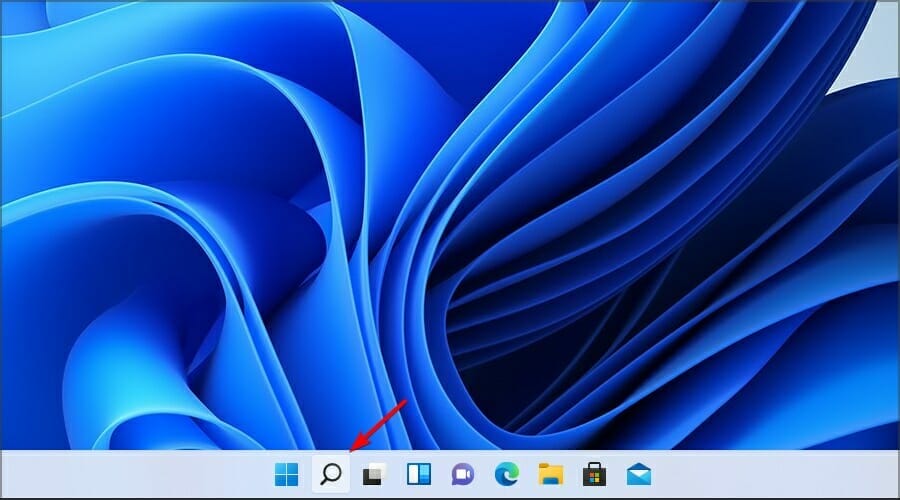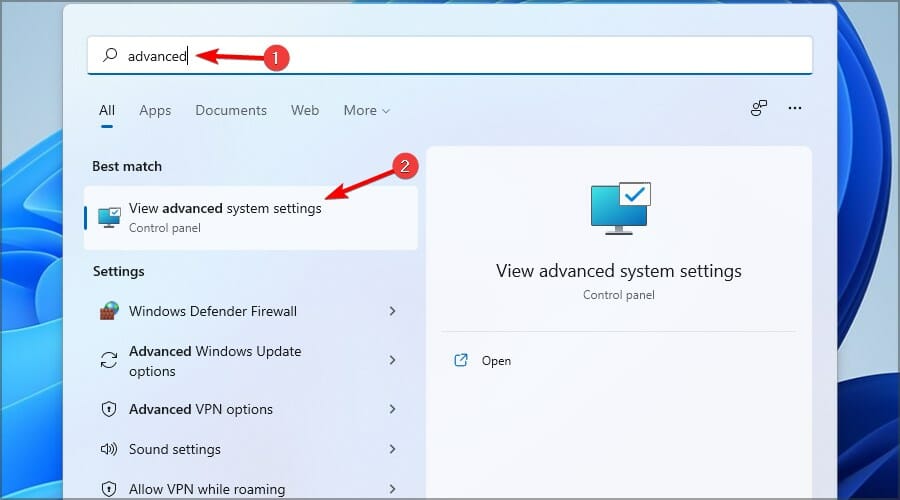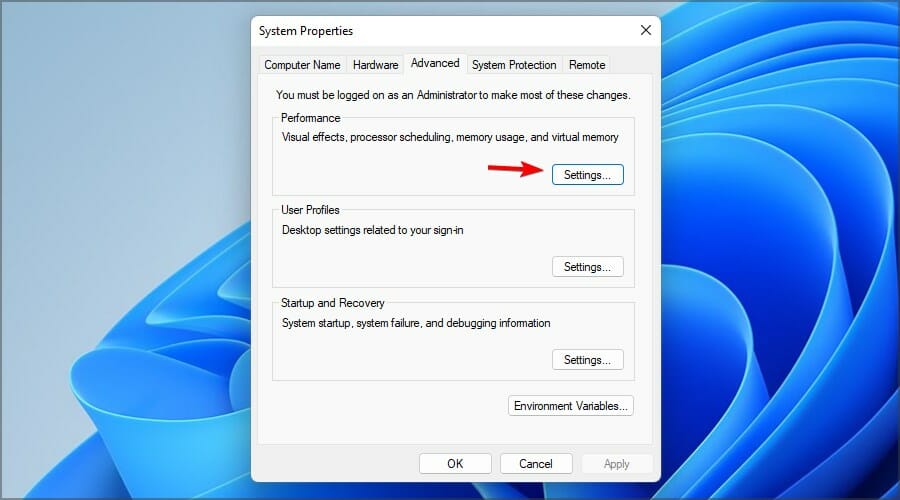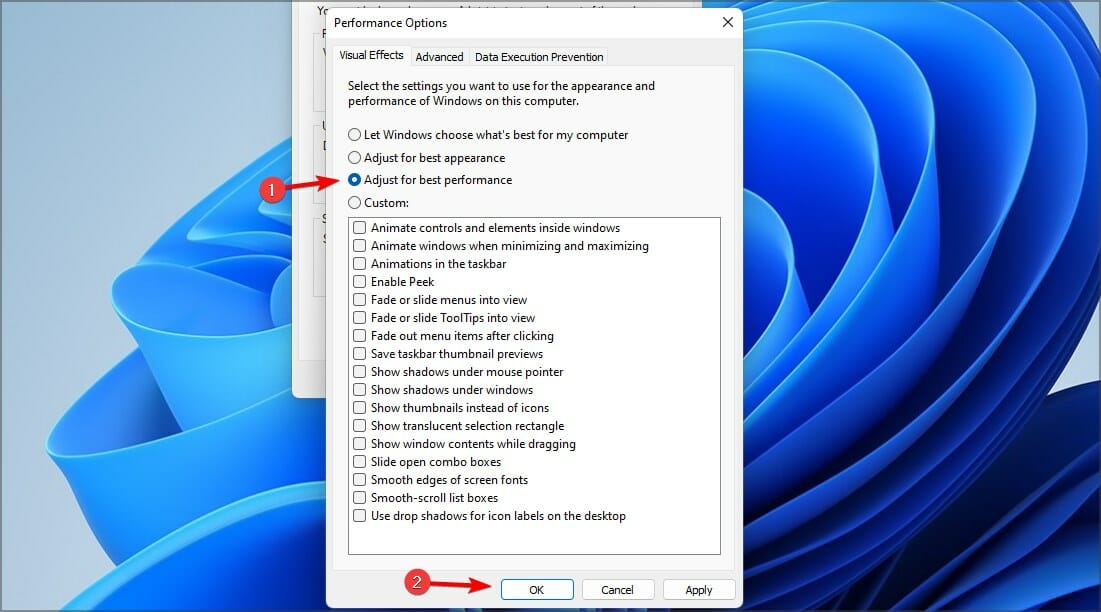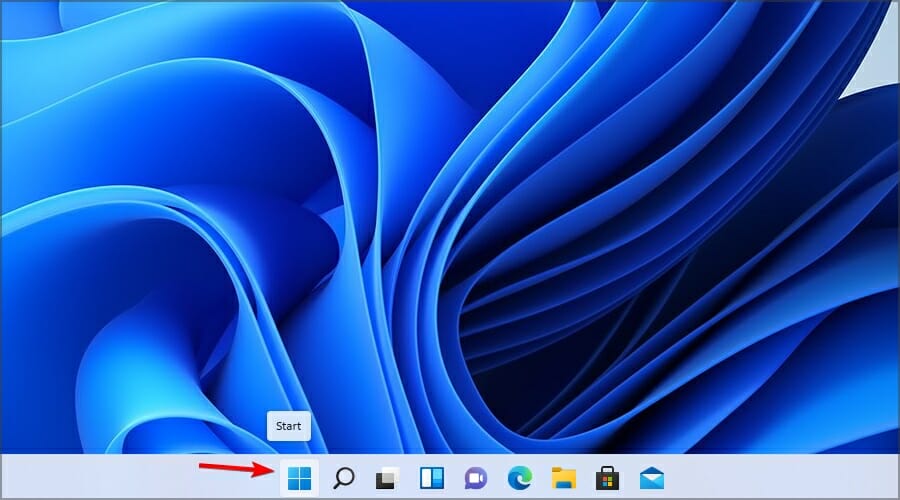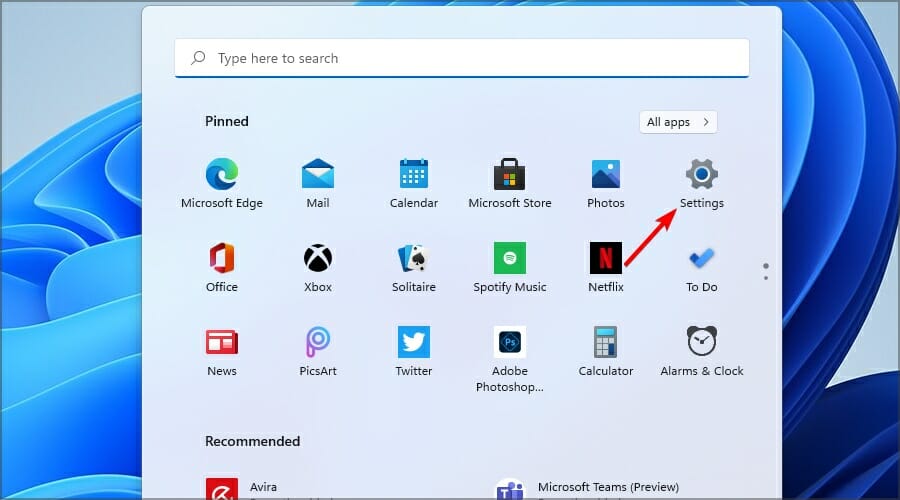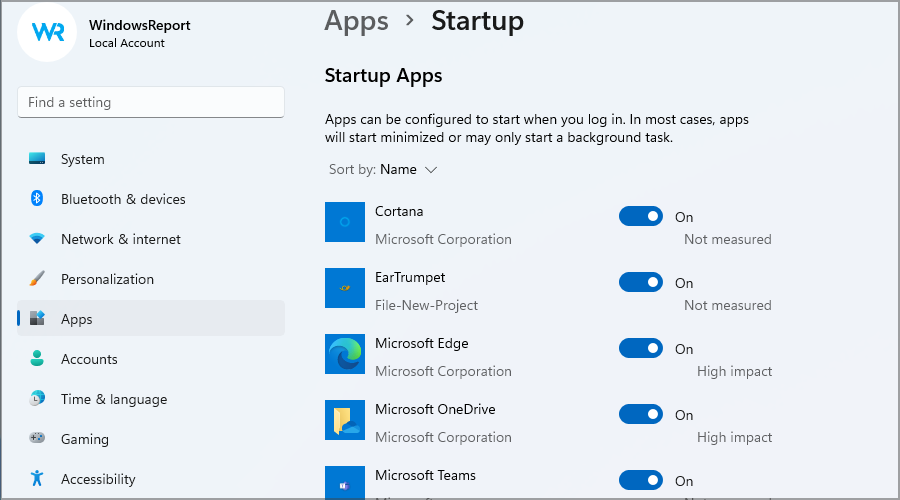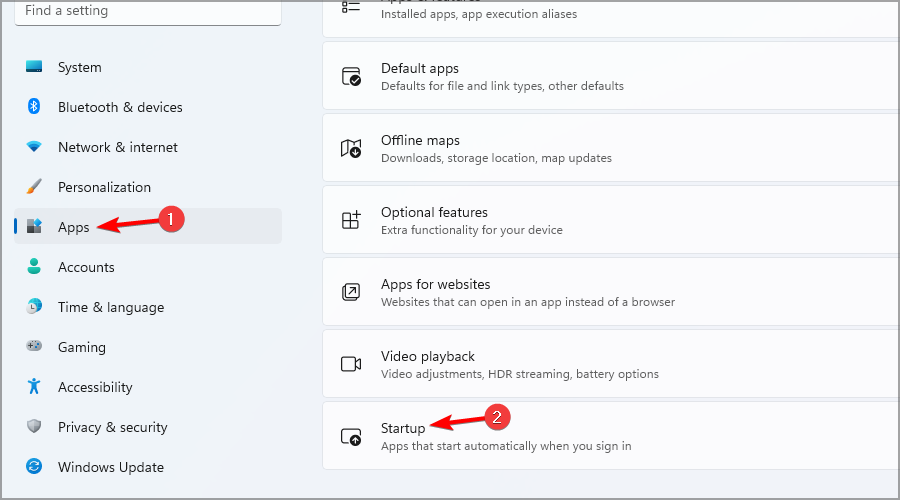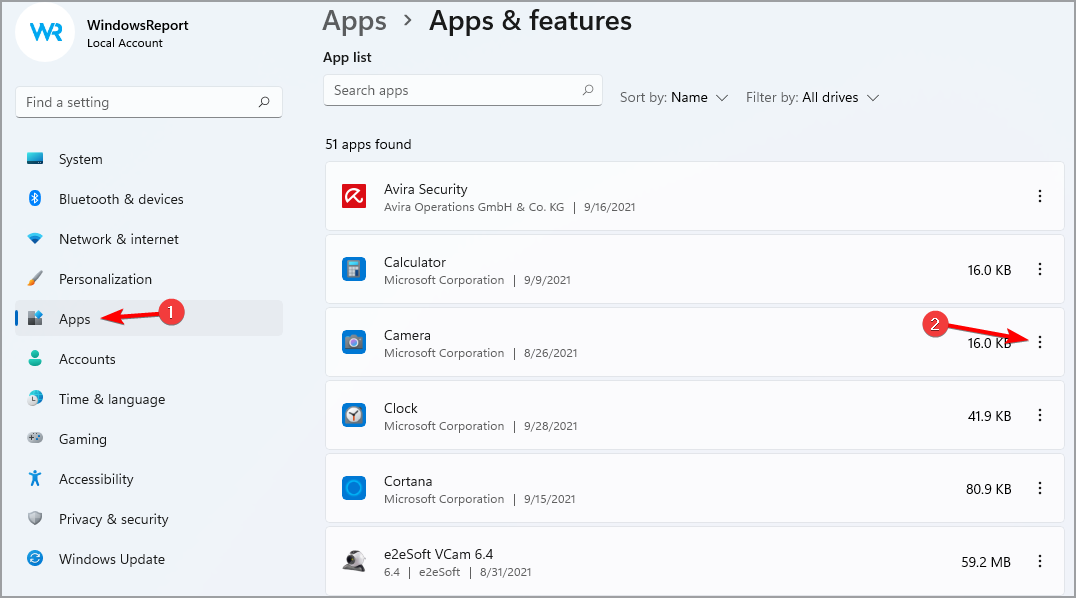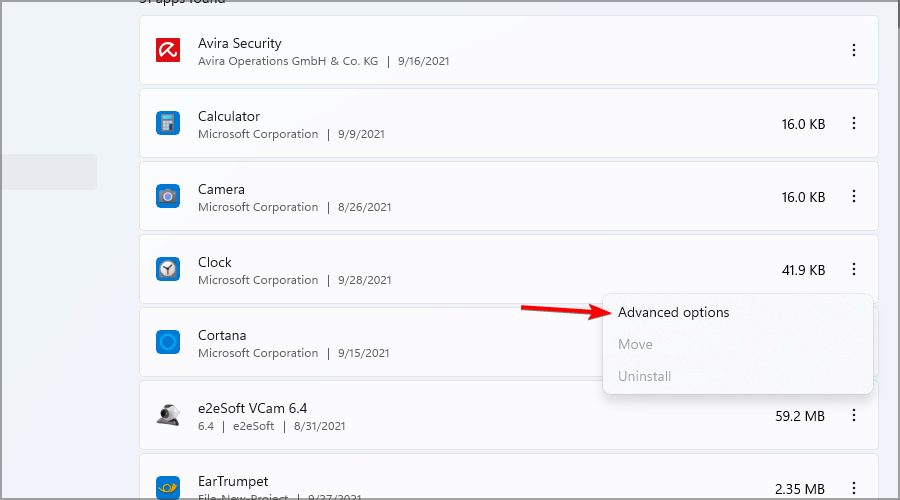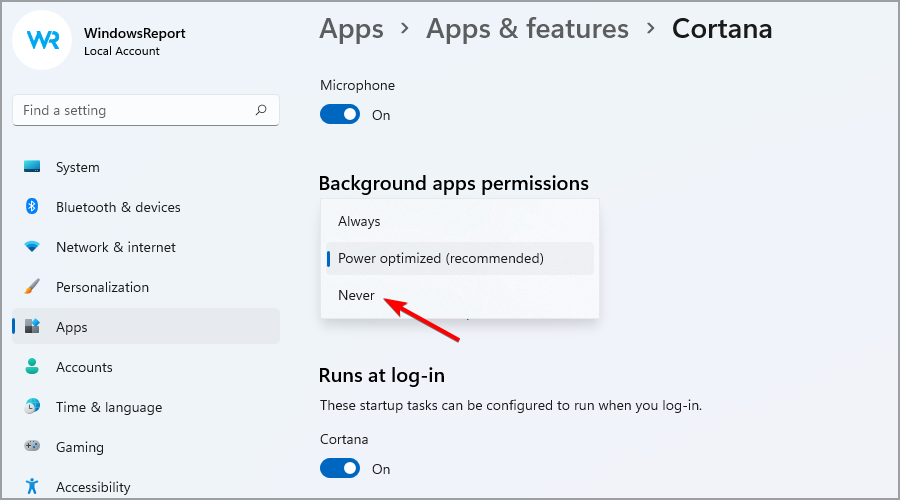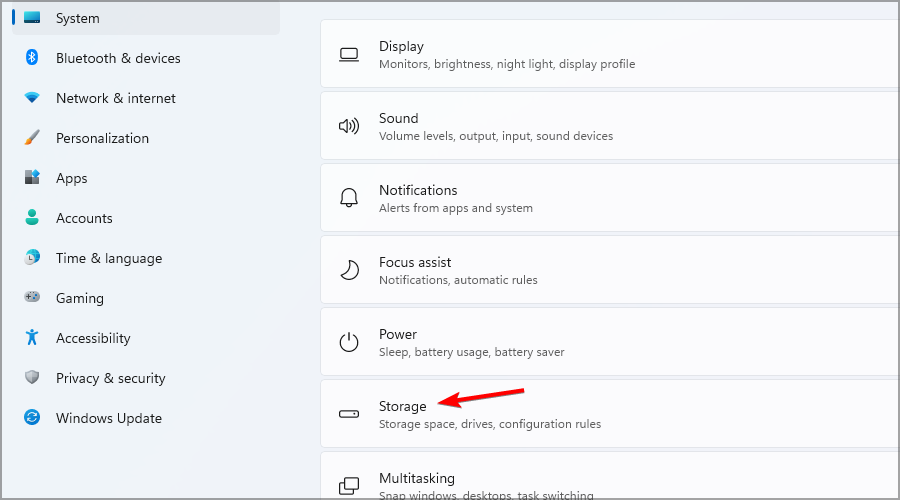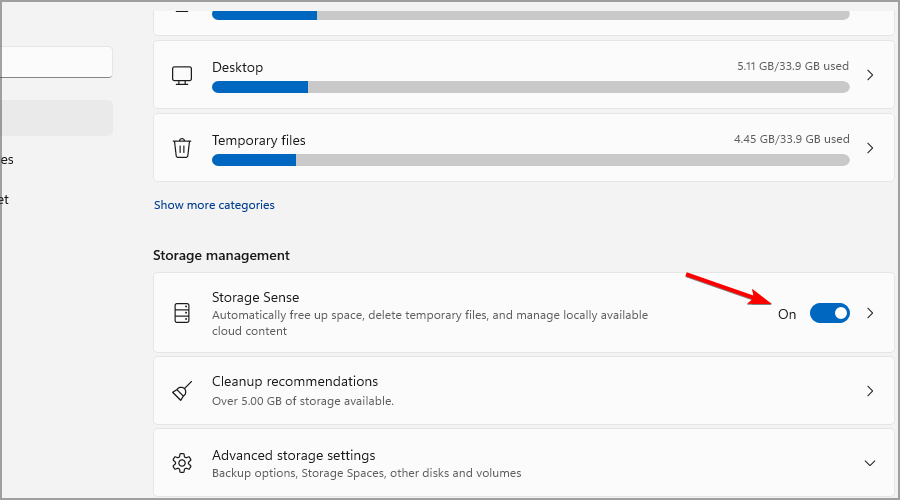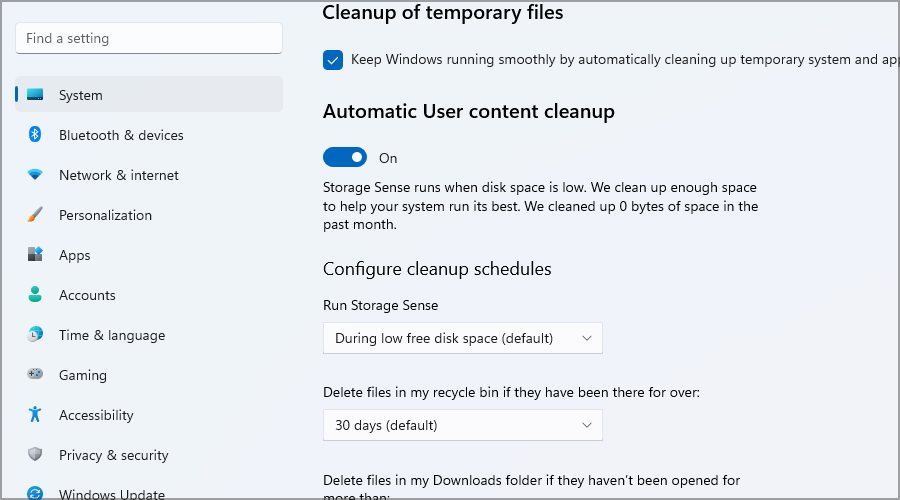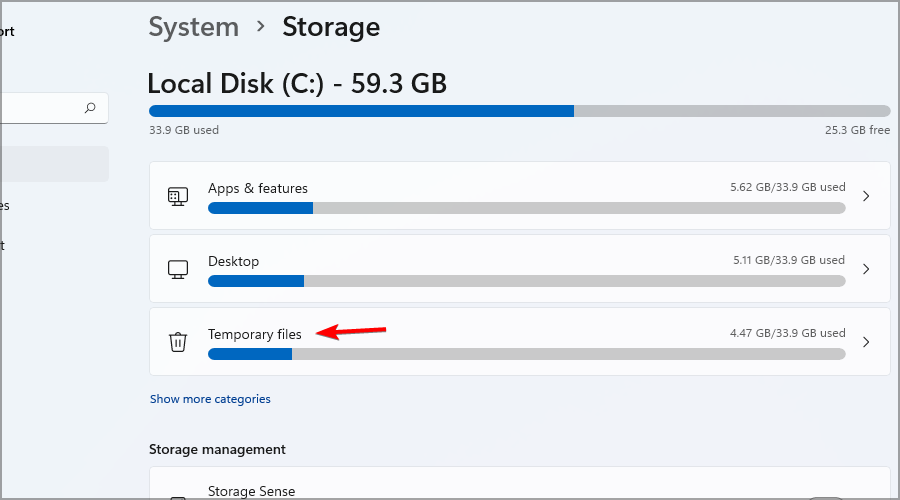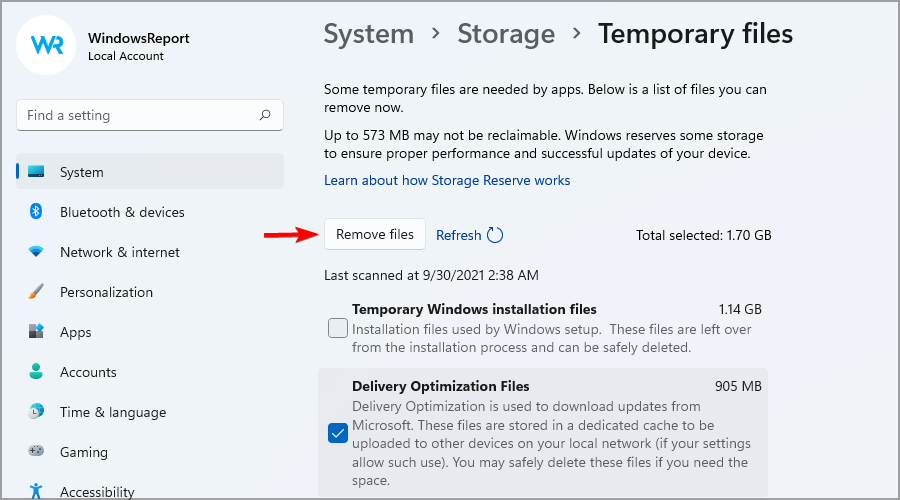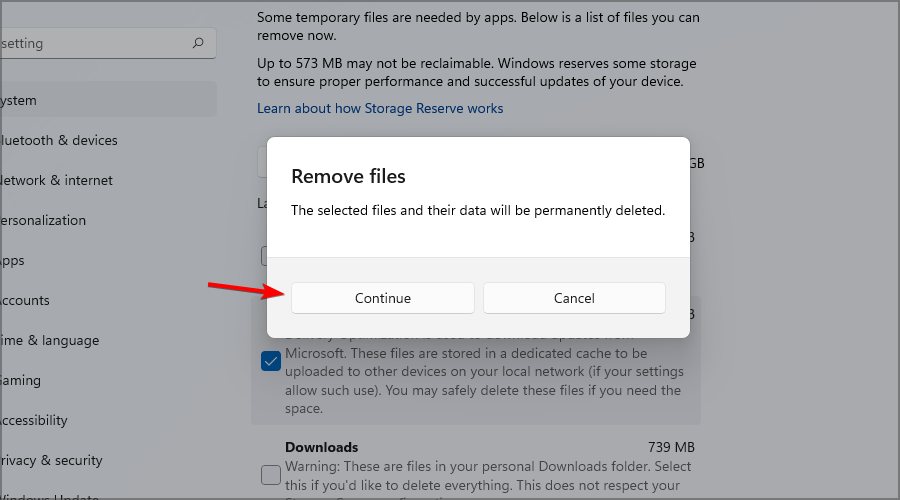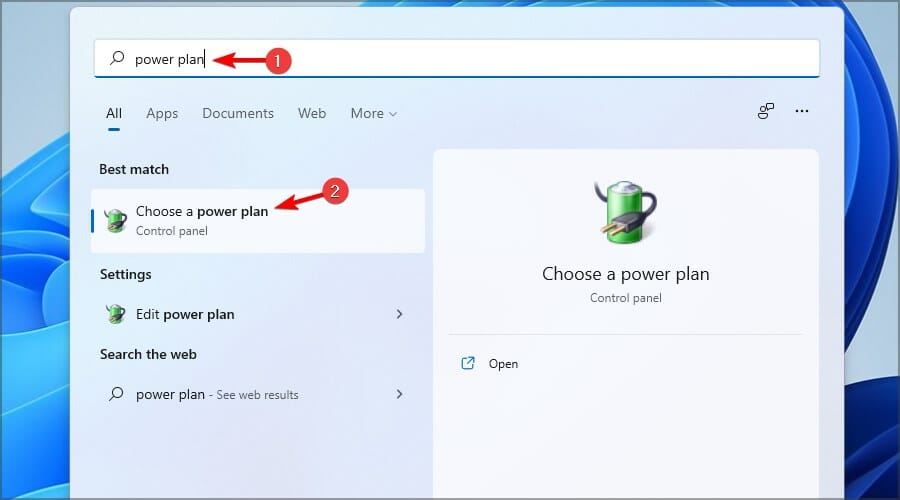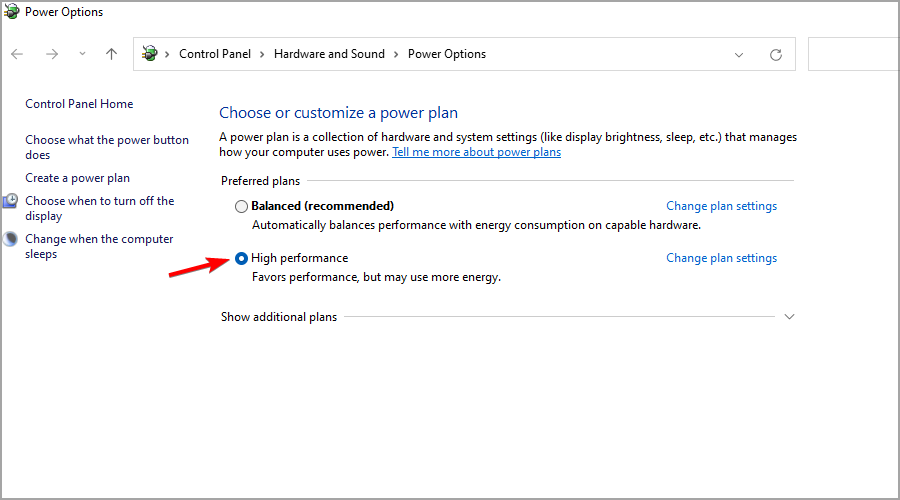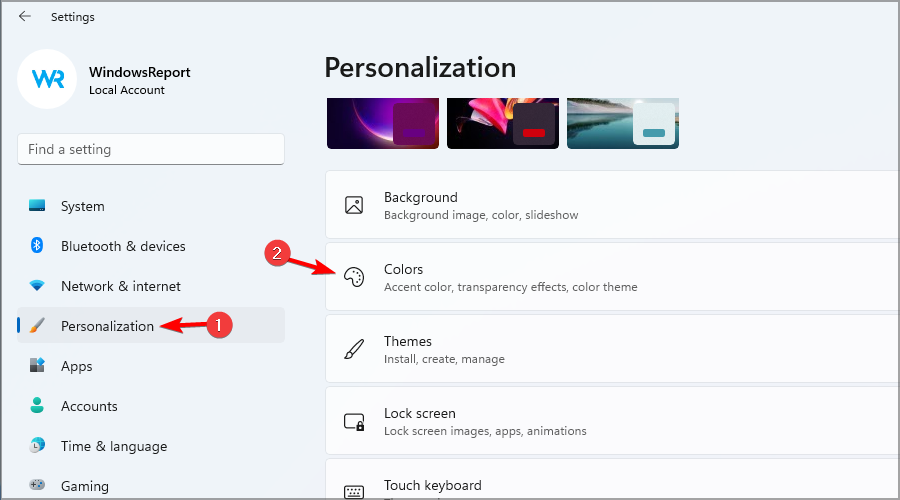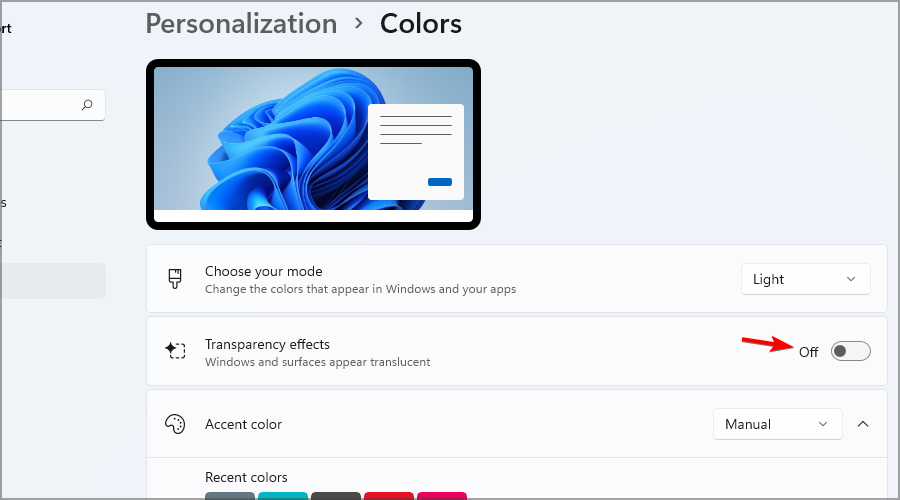Windows 11 Best Performance Settings [2023]
- Having the best Windows 11 settings will make your experience more enjoyable.
- Change the performance settings to pump more power into your CPU.
- You can also enable the Storage Sense feature to keep the HDD/SSD free of junk files.
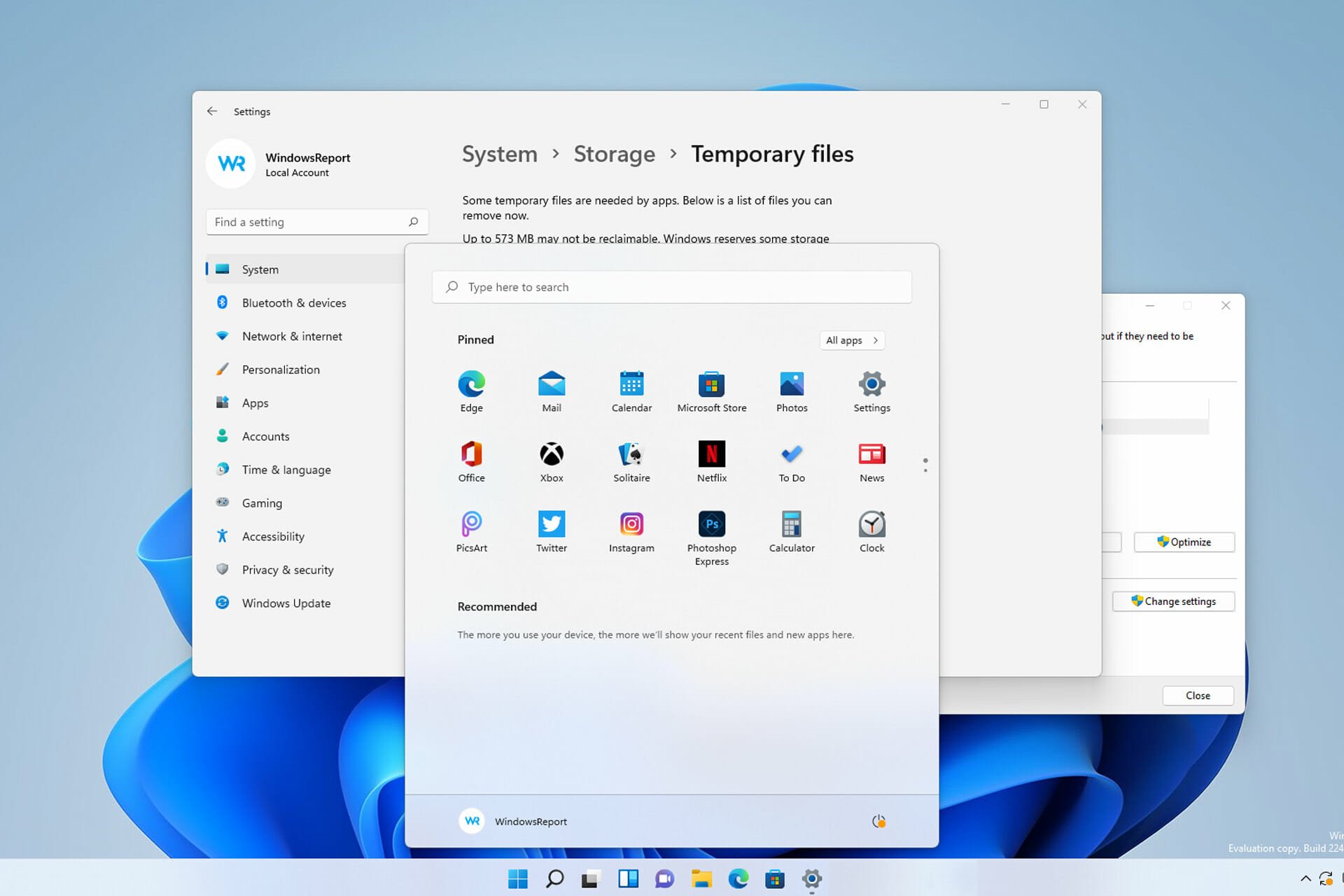
Microsoft has proven once again that it can break the limits set by its previous operating systems with Windows 11, both in terms of performance and features.
The new OS has better optimization and utilizes new technologies dedicated to a better gaming experience. I’m sure you’ve read about DirectStorage and Auto HDR.
What if I told you that you can increase the performance of your Windows by tweaking some settings, without the need for third-party software.
The default Windows 11 settings are optimal for all-around enjoyable performance, but you can take advantage of some factors to speed up and optimize your system.
What are the best Windows 11 performance settings?
1. Change performance settings
- Click the Search icon in the Taskbar.
- Type in advanced and select View advanced system settings.
- Then, select Settings in the Performance section.
- Select Adjust for best performance then click OK.
2. Clean the startup
- Click the Start button in the Taskbar.
- Select Settings.
- Go to Apps, then Startup.
- Toggle off the apps you no longer wish to start with your PC.
3. Disable background apps
- Click the Start icon in the Taskbar.
- Now select Settings.
- Navigate to Apps section in the left pane. In the right one, click the three dots icon next to the application that you want to disable.
- Select Advanced options.
- Set the Background app permission to Never.
- Repeat this step for all apps that you want to disable.
 NOTE
NOTE
4. Enable Storage Sense and clear the temporary files
- Press Windows Key + I to open the Settings app.
- Now select Storage.
- Turn Storage Sense on.
- You can also schedule and adjust your settings by click on Storage Sense.
While you’re here, you can also clear the temporary files by doing the following:
- In Storage section, click on Temporary files.
- Select the files that you want to remove and click on Remove files button.
- When the confirmation dialog appears, click on Continue.
- Wait while Windows completes the process.
5. Change power settings
- Press Windows Key + S and enter power plan. Select Choose a power plan from the list of results.
- Then, select High Performance. You might have to expand Show additional plans section in order to see the option.
6. Disable transparency effects
- Press Windows Key + I to open the Settings app.
- In the left pane, select Personalization. Now select Colors.
- Now, toggle Transparency effects off.
 NOTE
NOTE
Is Windows 11 more demanding than Windows 10?
Yes, the new version is slightly more demanding than its predecessor. To run Windows 11, you’ll need at least 4GB RAM, 64GB of storage space, and a dual-core 64-bit CPU.
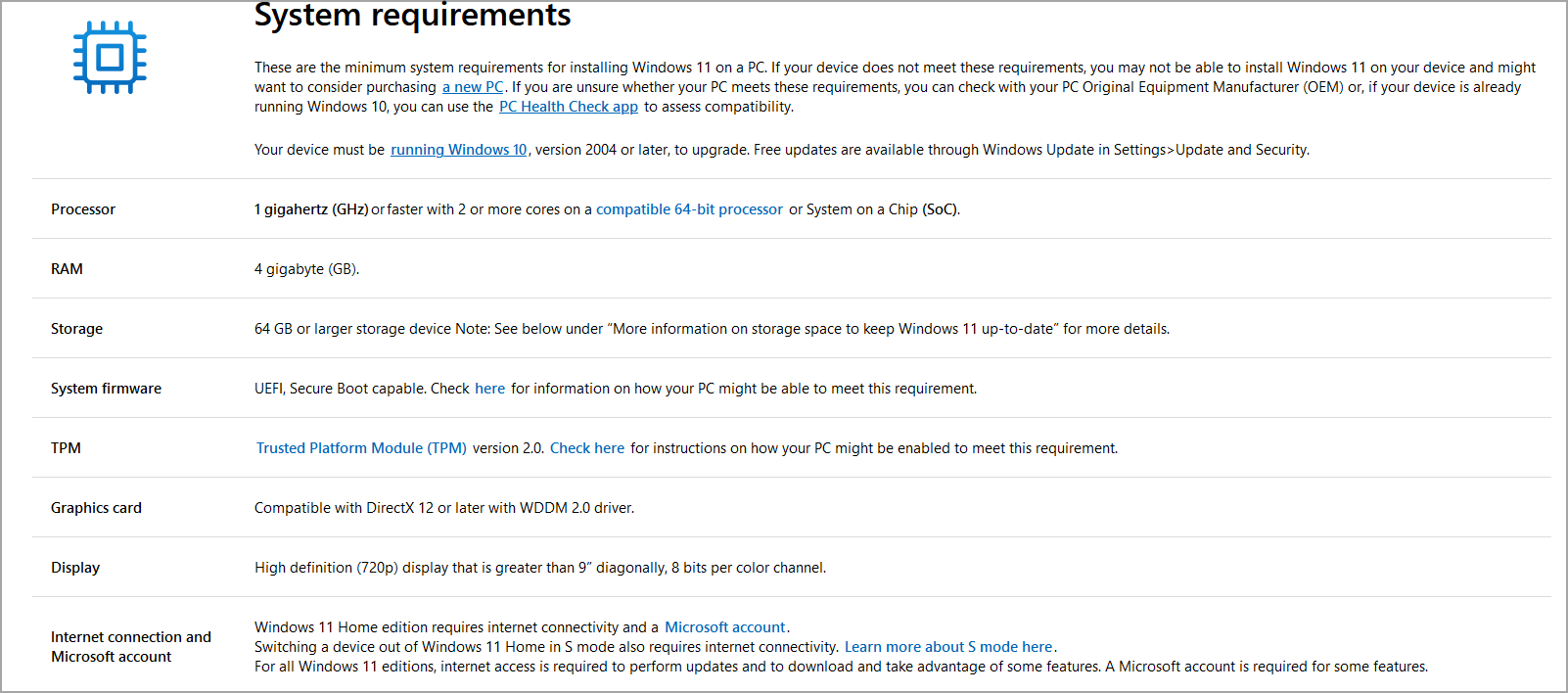
This isn’t the major change compared to Windows 10, however, not all processors will work with the latest release, so if you want to upgrade make sure that you don’t use hardware that is more than 4 years old.
For detailed information, we suggest checking the list of supported CPUs on Microsoft’s website.
Can third-party apps affect my performance?
This depends on several factors, but yes, third-party apps will negatively affect your performance over time. First off, they take up space, and if you keep installing software that you don’t use, you will run out of space eventually.
Expert tip:
SPONSORED
Some PC issues are hard to tackle, especially when it comes to missing or corrupted system files and repositories of your Windows.
Be sure to use a dedicated tool, such as Fortect, which will scan and replace your broken files with their fresh versions from its repository.
Secondly, almost all of them create temporary files and registry entries, which can cause slowdowns, especially if you have tens of applications installed.
To ensure that your PC runs without slowdowns, only install the necessary programs, and remove the ones that you don’t use with uninstaller software.
Can defragmentation speed up my PC?
If you’re using a hard drive and not an SSD, then defragmentation can improve your performance. In case you’re not familiar, this process will rearrange data, allowing you to access it faster.
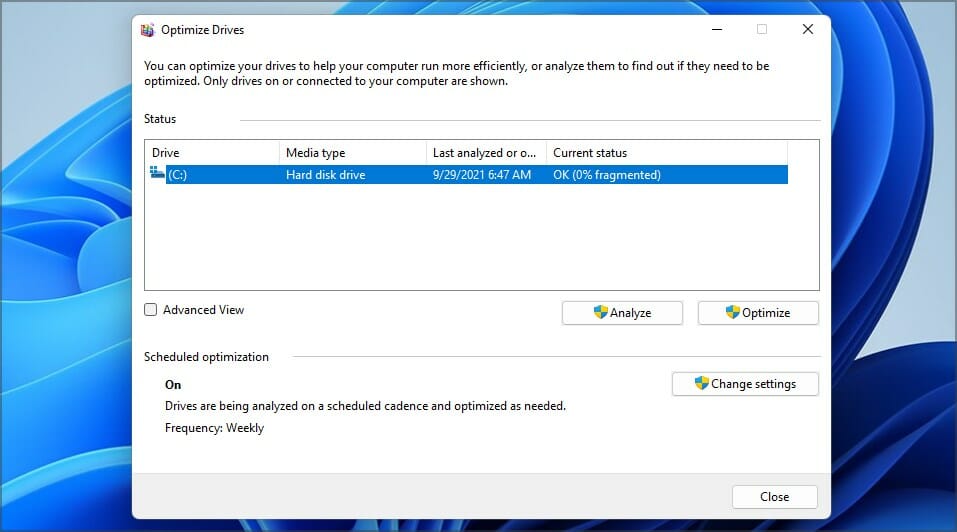
This process is usually performed automatically by Windows, and if you want to learn more about it, we suggest reading our how to defrag drives on Windows 11 guide.
Can using High performance power plan cause problems?
In most cases, High performance won’t cause any issues. By using this plan, your CPU speed won’t be reduced at all, so you should get better results in apps and games.
However, this power plan will use more power and cause more heat in some cases, so if you use it on your laptop, make sure you have a good cooling system and that your device is connected to the wall outlet.
That’s about it for this article. We’ve included all the ways you can optimize your device and make Windows 11 faster in a matter of moments.
All these settings are incredibly easy to access and are perfectly safe to use, so be sure to try them on your PC and check if they work for you.
If you have any suggestions or know about other settings that could improve Windows 11, don’t hesitate to tell us in the comment section below.
